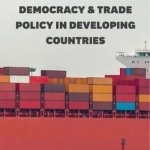Democracy and Trade Policy in Developing Countries
BookThis item doesn’t have any media yet
2016 | Business & Finance
Since the 1970s, two major trends have emerged among developing countries: the rise of new democracies and the rush to free trade. For some, the confluence of these events suggests that a free-market economy complements a fledgling democracy. Others argue that the two are inherently incompatible and that exposure to economic globalization actually jeopardizes new democracies. Which view is correct? Bumba Mukherjee argues that the reality of how democracy and trade policy unravel in developing countries is more nuanced than either account. Mukherjee offers the first comprehensive cross-national framework for identifying the specific economic conditions that influence trade policy in developing countries. Laying out the causes of variation in trade policy in four developing or recently developed countries--Brazil, India, Indonesia, and South Africa--he argues persuasively that changing political interactions among parties, party leaders, and the labor market are often key to trade policy outcome. For instance, if workers are in a position to benefit from opening up to trade, party leaders in turn support trade reforms by decreasing tariffs and other trade barriers. At a time when discussions about the stability of new democracies are at the forefront, Democracy and Trade Policy in Developing Countries provides invaluable insight into the conditions needed for a democracy to survive in the developing world in the context of globalization.
Related Items:
| Published by | The University of Chicago Press |
| Edition | Unknown |
| ISBN | 9780226358819 |
| Language | N/A |
Images And Data Courtesy Of: The University of Chicago Press.
This content (including text, images, videos and other media) is published and used in accordance
with Fair Use.
